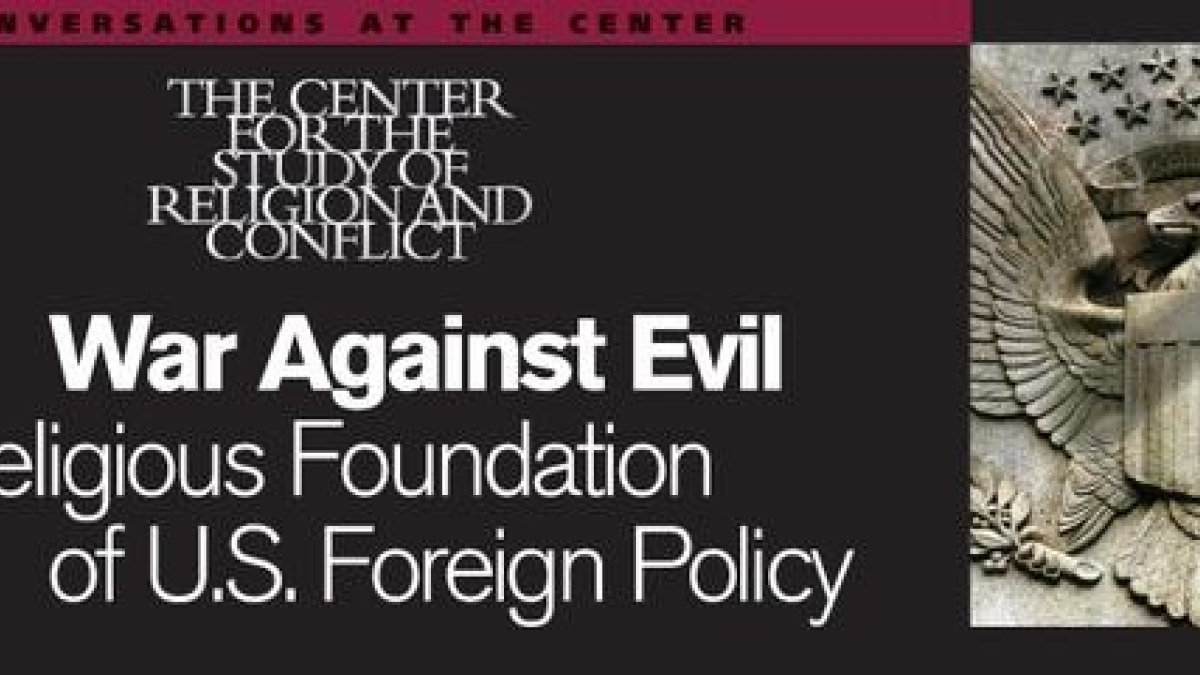Expert in religion, foreign policy to speak at ASU

Ira Chernus, professor of religious studies at the University of Colorado at Boulder, will discuss Christian theology and its relation to American foreign policy in his upcoming talk, “War Against Evil: The Religious Foundation of US Foreign Policy.” This lecture is part of the Center for the Study of Religion and Conflict’s Conversations at the Center colloquium series. The talk will be at noon, Nov. 7, in West Hall, room 135 on the Tempe campus.
In his talk, Chernus will examine the influence of Reinhold Niebuhr on the deep foundation of Christian theology that American foreign policy is built on, and will suggest an alternative narrative for U.S. national interest that is better equipped to confront contemporary foreign policy challenges.
“We can never stand outside the network of mutuality, as if we were the Lone Ranger arriving on the scene to destroy an evil we played no part in creating,” says Chernus. “Just as Bush is tied to Osama, so each of us is tied to all those who do things that outrage us.”
“We cannot simply destroy them and think that the outrages have been erased. To right the wrongs of the world, we must start by recognizing our own responsibility for helping to spawn those wrongs. Indeed, fixing our own part in the wrongs we see all over the world may be all that we can do,” says Chernus.
In his academic and popular writing, Chernus address issues of peace, war, foreign policy and nationalism in the United States. He also writes on U.S. Middle East policy, particularly the Israel-Palestine conflict.
"Ira Chernus has written extensively on the intersections of religion and American identity and foreign policy, unsettling many of the conventional ways of thinking about these matters,” says Linell Cady, director of the Center for the Study of Religion and Conflict.
Chernus is the author of nine books and numerous articles and essays. His recent books include "Monsters to Destroy: The Neoconservative War on Terror and Sin," in which he examines the symbols and stories of American culture in ways that shed surprising light on the interrelationship of terms such as “conservative moralism” and “liberal interventionism,” and "American Nonviolence: The History of an Idea," which covers the history of nonviolence from colonial times to the present.
Chernus has also written extensively on the religious and symbolic dimensions of the nuclear age and the impact of nuclear weapons upon U.S. society and culture. His research on the Eisenhower years has lead him back to the presidencies of Franklin D. Roosevelt and Dwight D. Eisenhower for an examination of the origins of what he calls the “national security state.”
An active radio commentator, op-ed writer and blogger, Chernus’s work has appeared in a wide variety of online publications, including the Huffington Post, Common Dreams, TomDispatch, AlterNet, Truthout, Foreign Policy in Focus and Religion Dispatches. In 2012, he started a new project, Mythic America, addressing “America’s national myths in the past, present and future.” The project includes a series of essays published online, a new blog, MythicAmerica.us and a Facebook page. His recent writings on Israel, Palestine and the U.S. are also collected on a separate blog.
This colloquium is part of the series, “Conversations at the Center,” which aims to stimulate cross-disciplinary conversation on theoretical and methodological issues in the study of religion and conflict. Past presenters have included Ron Hassner, Asef Bayat, Elizabeth Shakman Hurd and Bruce Lincoln.
For more information, visit csrc.asu.edu.
The Center for the Study of Religion and Conflict is an interdisciplinary research unit of the College of Liberal Arts and Sciences that examines the role of religion as a driving force in human affairs.
Story by Katie Mykleseth